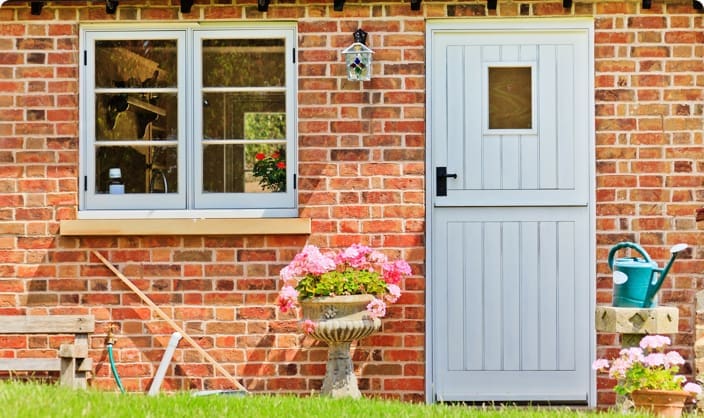Shared Ownership Mortgages with Bad Credit
The banking crisis at the end of the last decade caused all banks and lenders to become far more cautious in their lending practices. Since then, it has been more challenging to get a mortgage as banks are now far less willing to offer loans to people unless you meet some quite strict criteria.
Get in touch for a free initial, no-obligation discussion about your mortgage situation.
Do you qualify?
Fill out our quick and easy Bad Credit calculator below. We only require a few details to see how much you may be able to borrow.
NO CREDIT CHECKS!
Recognising that many people were facing difficulty getting accepted for mortgages or finding the finances to afford getting on the property ladder, the government introduced a range of schemes aimed at reducing these problems. Shared Ownership has been around for some time now, and could be a way to get a stake in your own home, and invest for the future.

Shared Ownership Mortgages
The Shared Ownership Scheme is a government initiative to enable people who might not be able to afford the full mortgage on a property to instead own a percentage of it. If they have enough for the deposit, potential homeowners could purchase 25%, 50% or 75% of the property in question, with the balance owned by a local housing association. You would then make mortgage payments on the home loan covering your portion of the house, while paying rent on the rest to the co-owner.
There is some flexibility in the percentage of the property available for you to own. If your circumstances change such that a higher mortgage becomes affordable, you could increase your stake from 25% to 50% or 75% (or even 100% for full ownership in some cases), so more of your money will go into your home, and your rent will come down in proportion.

Your Bad Credit Situation
Different bad credit situations need different mortgage solutions. We approach mortgages for your individual needs.

Loans with Bad Credit
If you’re looking to get a secured loan or bridging loan with bad credit, you may face some hurdles. We can offer you the best advice for your situation.

Mortgage Affordability
Your affordability will always be assessed when it comes to mortgages. Read our guides to help you prepare for your next steps.
Shared Ownership with Bad Credit FAQs
This is a government scheme allowing you to buy a percentage share of a property, for which most will need to get a mortgage for. You then pay rent to the other owner on the remaining share. Sometimes referred to as ‘part buy, part rent’ schemes, they are typically run by housing associations or local authorities. You are likely to have the option to buy some or all of the remaining share at a later date.
If you want to sell your Shared Ownership property, then the local authority or housing association will have first refusal to buy your share back. There are likely to be other people on a waiting list they will see if they can sell your share to, but if this isn’t possible, you should then be able to offer your property for sale on the open market.
Under the Shared Ownership scheme you are able to purchase a share of new-build or existing properties that are owned by an approved qualifying body – usually the local authority or a housing association, but it can also mean properties owned by other bodies such as a housing action trust, a development corporation, the Northern Ireland Housing Executive, or the Commission for the New Towns. Shared Ownership properties are always leasehold.
The minimum share you can purchase in a Shared Ownership scheme from an approved qualifying body, like a local authority or a housing association, is 25%.
The maximum share you can purchase under a government Shared Ownership scheme from an approved qualifying body, like a local authority or a housing association, is 75%. If you want to own a great portion of the property than this, then you must buy it outright.
Yes, you are able to do this – shared ownership properties are usually sold in increments of 25%, so you could own 25%, 50% or 75% (known as ‘staircasing’), although some authorities are now allowing smaller purchases of 10% or 20%. If you want to own more than 75% of the property, you will have to buy it outright.
Remember that the price of more shares in the property will be based on the current market value, so additional shares may be more expensive or cheaper than your first share, depending on if the property’s value has decreased or increased.
Currently, no – under the Shared Ownership scheme, the government imposes no time restrictions on buying more shares in your property. This said, individual local authorities or housing associations may impose time restrictions or other staircasing restraints in their lease conditions.
It will be up to the individual housing association or local authority to work out the exact annual rent calculation, but it is often based on a percentage of the share they own (or ‘retained equity’), and is usually around 3%.
For instance, if you owned a 75% share of a property worth £200,000, the co-owners retained equity would be 25%, or £50,000, and this is the share of the property on which you would pay rent. Assuming they will charge 3% annually, rent for the year would be £1,500, which equals £125 per month.
Yes – as with any kind of mortgage, it can be possible to get a mortgage with bad credit events on your credit reports. A specialist lender will take into consideration your entire circumstances, conduct an affordability assessment and look at your current financial status and more recent credit history in order to make a decision.
We'll call you…
"*" indicates required fields
